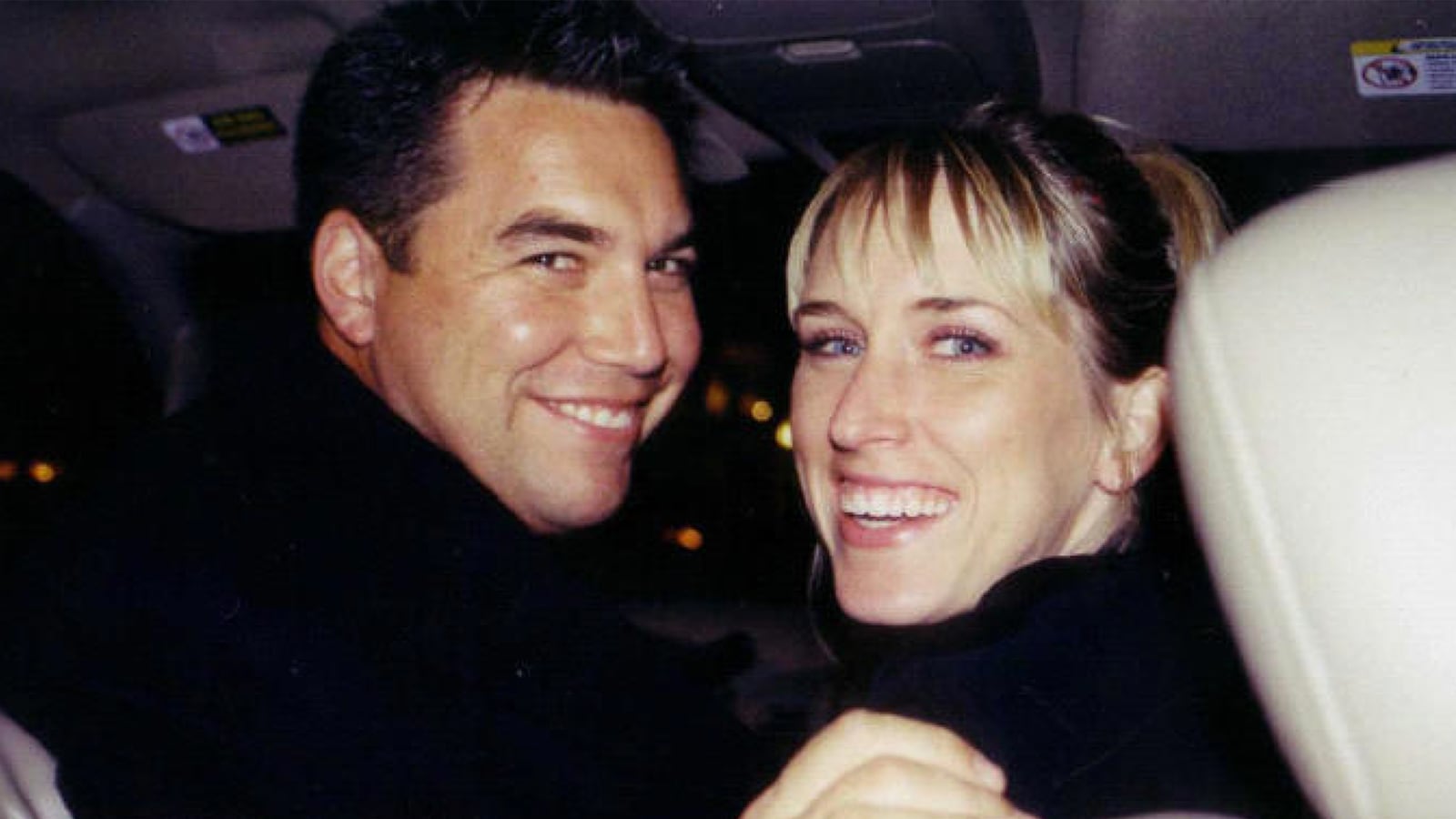To this day, Scott Peterson maintains his innocence regarding the murder of his wife Laci and their unborn child Conner, and he’ll likely continue to do so in Peacock’s upcoming Face to Face with Scott Peterson, in which he gives his first on-air comments in more than 20 years. Nonetheless, it’s hard to imagine him providing any notable revelations after viewing American Murder: Laci Peterson, Netflix’s three-part docuseries about the case that captivated the nation in the early 2000s, which arrives this Thursday, Aug. 14, ahead of the Peacock doc.
Featuring interviews with every key player in this sordid affair save for Scott himself, American Murder is a straightforward overview that affords both sides with opportunities to make their respective arguments about Scott’s guilt and innocence—although it’s difficult to imagine viewers coming away from it with doubts about his culpability.
Helmed by one of Netflix’s favorite non-fiction directors, Skye Borgman (Girl in the Picture, I Just Killed My Dad, The Truth About Jim), American Murder: Laci Peterson presents no stunning new information about Laci Peterson, who went missing on Dec. 24, 2002 from her home in Modesto, California while eight months pregnant. Her disappearance was first reported by her husband Scott, who claimed that upon returning from a Christmas Eve day of fishing, he found no one at home and their dog in the backyard, running around dragging its leash—a sign that the pooch had shown up alone after a supposed walk in the park with Laci.
Laci’s mother Sharon Rocha, her close friends Lori Heintz, Stacey Boyers, Rene Tomlinson, and Heather Adams, and Scott’s sister Susan Caudillo and sister-in-law Janey Peterson all recount these awful initial moments, when concern turned to horrified panic, with flyers quickly made, a command center swiftly established, and search parties organized to scour the area for any signs of Laci.
Throughout this early going, Scott remained calm, unemotional, and largely off-camera, shunning the press even as everyone else turned to reporters to get the word out. More than once, Scott’s behavior is described as “odd” in American Murder, and that impression was amplified by his weird story about the days and nights in question. Scott told his neighbor that he wasn’t fishing but golfing on Christmas Eve day. Sharon and the rest of the family didn’t know anything about his boat, which he’d only purchased a couple of weeks earlier on December 9. His reason for not mentioning the craft to anyone (he wanted to surprise his father-in-law Ron?) didn’t make sense, nor did the fact that he’d driven 90 miles away to Berkeley Marina to give the boat its first test run.
None of this was proof that he’d been involved in Laci’s disappearance, but it raised puzzling red flags—as did news that upon arriving home and finding Laci gone, Scott had washed his clothes, eaten pizza, and showered before notifying anyone about the strange circumstances he’d discovered.
Two decades later, Laci’s mother understandably still chokes up while discussing these events, and her commentary—along with that of friends as well as detectives Al Brocchini and Jon Buehler—lends American Murder: Laci Peterson a first-hand intimacy that justifies its existence. Borgman marries her talking-head interviews with the usual mixture of home movies, archival reports, photographs, and audio recordings. Yet her trump card is a sit-down with Amber Frey, who soon took center stage in this drama. Hearing about Laci’s tale on the news, Amber called police and informed them that she had been in a relationship with Scott for the past few months, and that Scott had told her first that he was single and then, on December 9 (the same day he bought the boat), that he had been married but his spouse had died.
As far as bombshells go, this was a biggie, and in American Murder: Laci Peterson, Amber clearly and convincingly lays out the timeline of her affair with Scott, in the process elucidating that she was a victim of his deceptions. Secretly recorded phone calls between Amber and Scott suggest that he envisioned a future with her, thereby giving him a motive for wanting to escape his wife (who was pregnant with a child that, Sharon says, Scott had originally not wanted).
When Laci’s body was found in the water near Brooks Island—the very spot near which Scott had told Al he’d been fishing on December 24—the prosecution decided it had enough evidence to move forward with a trial. The ensuing legal proceedings were catnip to the media, and ultimately concluded with convictions and a death-penalty sentence—an outcome that jurors Greg Beratlis and Mike Belmessieri state was not preordained.
In American Murder: Laci Peterson, Scott’s sister and sister-in-law maintain that he was wronged by the criminal justice system. However, they offer no exonerating evidence or competing version of events to make one think Scott didn’t murder his wife and child. As criminal investigative profiler Sharon Hagan contends, even without a smoking gun, Scott’s pattern of behavior in the weeks and months after Laci vanished—including avoiding the media and using his unborn child’s nursery as a storage room—spoke to a heartless disconnection that no grieving husband/father would feel in this situation.
Meanwhile, there’s reason to think he made multiple anchors (most of which were never found), he researched bay tides online on Dec. 8, he obtained his fishing license and lures on Dec. 20, and—most damning of all—he said Laci was at home in Modesto walking their dog when, in reality, she was being dumped in the exact waters where Scott admitted he was on the day in question.
Couple of all of that with the fact that Scott was arrested 30 miles from the Mexican border with a car full of supplies (and nearly $15,000 in cash), and the idea that some other mystery assailant did this deed—like a pair of drug-addict burglars who robbed the home across the street from Scott and Laci’s residence—seems far-fetched at best, and ridiculous at worst. American Murder: Laci Peterson won’t wow anyone who’s familiar with this tabloid-ready saga, but it’s a reasonably definitive summary of Scott Peterson’s villainy.







